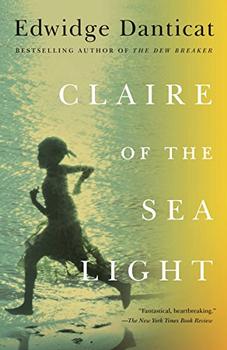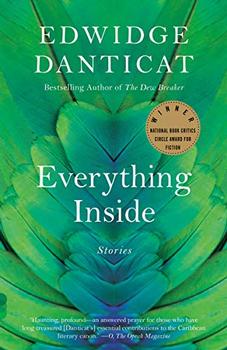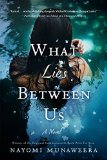Summary | Excerpt | Reading Guide | Reviews | Beyond the book | Read-Alikes | Genres & Themes | Author Bio

Each of us has defining moments, experiences that alter our lives forever. But what happens when these moments occur against our wills – when our fates are vulnerable, even powerless, to the forces of nature, violence, political and social injustice?
Edwidge Danticat explores these transformative events in her new book of fiction, a work of connected stories, titled for a child character named Claire Limyè Lanmè—Claire of the Sea Light. Like Danticat's previous works (including Breath, Eyes, Memory and Brother, I'm Dying), this book has its foundation in her native Haiti, where she was born in 1969 and lived until the age of twelve when she moved to the United States.
In Claire of the Sea Light, Haiti, once again, is her own formidable character. One with a deeply capricious nature: by turns sublime, terrible, even bizarre. Through Danticat's intoxicating prose, it seems almost possible to feel the drizzle of a sun shower, taste salt in the sea air; or smell the fragrance of bougainvillea, the sweetness of coconuts. Yet there are also freak waves and temperatures so hot, frogs explode.
Claire of the Sea Light begins in May 2009 in the seaside town of Ville Rose. Early on, we learn that little Claire's first defining moment occurred without her even knowing: during her birth when her mother's heart suddenly stopped beating. Every year on her birthday, the surviving child and her fisherman father, Nozias, visit her mother's grave. And every year, Nozias considers giving his daughter away, in order to give her a better life. On her seventh birthday, he makes the agonizing choice to allow a local woman to raise her. Aware of her fate, Claire runs away that evening.
In the stories that follow, we discover more about Gaëlle, the fabric vendor with "reputed loose ways" who had once nursed Claire and agrees to take her. Gaëlle still suffers from the loss of her murdered husband and her own young daughter, the victim of a motorcycle accident. By a man Gaëlle considers to be an "inconsistent lover" she is told, "No one will ever love you more than you love your pain."
We also meet a one-armed gang leader, a police rookie turned newswriter, a schoolmaster and radio hostess, along with a larger cast of characters. One of the most compelling is a mother and beauty parlor owner named Flore, who reveals on a radio program the harrowing moment—and injustice—that changed her life.
For the most part, these stories that shift in time do so seamlessly and explore the depths of love, fear, grief, rage, guilt and shame. With great sensitivity and compassion, Danticat evokes the complexity of these giant emotions in women, men and children. In one scene, a pregnant woman carrying a child she believes is in peril swallows a dead baby frog. "Let them fight it out and see who will win," she tells herself. In another searing passage, a father grapples with choices he and his former wife made to protect their grown son, after he committed a heinous act.
Within this slim yet substantive work, the author delves into a vast array of territory, including family tragedies, Haiti's climate and history, romantic liaisons, rigid social hierarchies, physical reprimanding in school, illiteracy, sexual orientation, Haitian gangs, corruption and killings. Although this wealth of content is illuminating, some plotlines and characters are more visceral and nuanced than others. In several stories, Danticat incorporates a radio station's operations and programs to move the narrative forward. Unfortunately, this content sometimes reads too much like a plot device that slows the pace and weakens engagement.
Still, the book has many triumphs. The final piece, "Claire de Lune," is especially poignant and vivid, as told through the eyes of a child. Throughout this story and the work as a whole, Danticat reminds us just how powerful certain moments can be, and that whether these moments are precious, tragic, wishful, or frightening, they may mysteriously lead to a life both beautiful and uncorrupted.
![]() This review was originally published in The BookBrowse Review in September 2013, and has been updated for the
July 2014 edition.
Click here to go to this issue.
This review was originally published in The BookBrowse Review in September 2013, and has been updated for the
July 2014 edition.
Click here to go to this issue.

If you liked Claire of the Sea Light, try these:

by Edwidge Danticat
Published 2020
From the internationally acclaimed, best-selling author of Brother, I'm Dying, a collection of vividly imagined stories about community, family, and love.

by Nayomi Munaweera
Published 2017
From Nayomi Munaweera, the award-winning author of Island of a Thousand Mirrors, comes the confession of a woman, driven by the demons of her past to commit a single and possibly unforgivable crime.
Give me the luxuries of life and I will willingly do without the necessities.
Click Here to find out who said this, as well as discovering other famous literary quotes!
Your guide toexceptional books
BookBrowse seeks out and recommends the best in contemporary fiction and nonfiction—books that not only engage and entertain but also deepen our understanding of ourselves and the world around us.